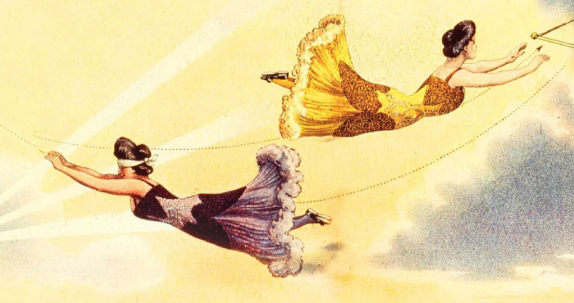By Megan Lambert (Contributor) – Email
Almost Famous Women is a book that is better than its title; although a quick glance might make you think so, it isn’t “chick lit.”
Megan Mayhew Bergman doesn’t necessarily write about women who should have been famous, but women whose talents and extraordinary features didn’t propel them to immediate fame.
These short stories are down-to-earth, and not in the girl-next-door, soda-pop-and-bubblegum kind of way. Bergman writes with a gritty, dirty, and sometimes uncouth honesty that exposes the fragility of an individual’s moral compass. She invites you into the no-holds-barred worlds of athletes and artists, and she doesn’t neatly tie up the strings at the end of each story. She leaves the messiness of their lives still untangled; the narrator and the reader only pop in and out for a minute to see the action. We leave each story without a resolution, but with a comprehensive sympathy for the characters.
Most of Almost Famous Women, technically categorized as historical fiction, is set in the 20th century. I found this useful while I was flipping from story to story, as my mind’s eye didn’t have to totally deconstruct the social or economic parameters of that time. It was just like typing in “Paris to Vancouver” on Google Earth, and being drawn out of one world and into the next (sometimes giving or taking 20 years).
Each woman is unique, which gives the collection a colourful flavour (and a smorgasbord of dynamic character development). There is a feminist undercurrent running through these pages, but each story isn’t just about these women being restricted by society. They are overcoming a multitude of personal problems that include being restricted by society, which makes this a great stepping stone to learning about feminism. This book makes the reader feel empathy for these women — who are of colour, lesbian, single, artistic, athletic, married, privileged, and poor — by seeing them struggle in a time when the odds are already against them.
I won’t give away too much about the characters, but here’s a peek into their diversity: we’ve got a lesbian rower who owns an island and everybody on it; the estranged, illegitimate daughter of Lord Byron; and a pair of orphaned conjoined twins navigating a childhood of exploitative show biz. Each story begins with a photo and a brief description of the almost famous woman, and then Bergman’s imagination fills in the cracks of their history.
But three quarters of the way through the collection, the stories get shorter and the definition of “historical” gets broader. Bergman takes a small detail, “the boxes of lipstick,” from an anecdote of an officer who helped liberate the Bergen-Belsen concentration camp, and writes from a nameless point of view about the women in the camp who put on the lipstick after they were liberated.
“The Lottery, Redux” is a creative rewrite of Shirley Jackson’s famous (and, after its publication in New York in the 1920s, hated) short story “The Lottery,” a cautionary tale where villagers of a New England town blindly follow the tradition of randomly stoning one of its inhabitants to death every year. Bergman constructs a matriarchal leadership of the town, whose descendants are safe from the killings and feel guilty for being so. As the rest of the collection is primarily historical fiction, this story seemed more like Bergman serving her personal writing interests rather than continuing the theme set in the book.
That said, it was also nice to shake up the trajectory of the piece with something fictional — especially once I figured out that Bergman’s formula goes a little something like this: protagonist is potentially (or, “almost”) famous, protagonist goes through everyday life (which sucks), protagonist either dies or is left in a vague metaphysical awareness.
However, Almost Famous Women isn’t boring or predictable. It’s well worth the time if you’re looking for an interesting and enlightening read.



